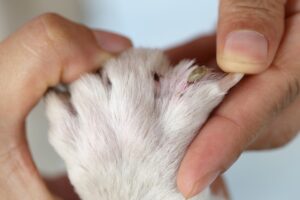Are you a passionate animal lover who longs for the companionship of a furry friend but finds yourself plagued by pesky pet allergies? Well, fret no more. We have just the guide to help you combat those sniffles and sneezes while still enjoying all the love and joy of having a four-legged companion.
Whether you’re already a proud pet parent or are simply considering adding a furry addition to your family, these tips will have you breathing easy in no time. Say goodbye to itchy eyes and hello to endless cuddles as we dive into the world of conquering pet allergies once and for all.
Understand the Source of Allergens
To effectively combat pet allergies, it’s crucial to understand their root cause. Pet allergies are not triggered by animal fur, as commonly believed, but by proteins found in an animal’s dander, saliva, and urine. These microscopic allergenic proteins can become airborne or stick to surfaces, triggering allergic reactions in susceptible individuals. By knowing the source, you can better target your efforts to minimize exposure and reduce symptoms.
Create Pet-Free Zones
Designating specific areas of your home as pet-free zones can significantly reduce allergen exposure. Ideally, keep your bedroom and other frequently used spaces free from your pet’s presence. Consider using high-efficiency particulate air (HEPA) filters in these areas to capture allergens and maintain cleaner air quality. By establishing pet-free zones, you’ll have a sanctuary where you can retreat and find relief from allergy symptoms.
Regular Grooming and Cleaning
Regular grooming and cleaning routines are paramount in managing pet allergies. Allergies and Skin problems may be reduced with a regular grooming and cleaning routine. You can brush your pet daily and bathe them weekly using a mild, hypoallergenic shampoo to help reduce dander and saliva accumulating in carpets, upholstery, and bedding. Vacuuming your home regularly (at least 2-3 times a week) can help reduce the amount of pet dander, as can washing pet bedding in hot water once a week. It is also important to keep pets out of bedrooms or other areas where allergies may be worse.
Consult with a Medical Professional
 If you’re struggling with persistent and severe pet allergy symptoms, it’s advisable to consult with a medical professional, such as an allergist or immunologist. They can conduct specific allergy tests to identify the exact triggers and recommend appropriate medications or immunotherapy options tailored to your needs. Seeking professional advice will provide a comprehensive understanding of your allergies and guide you toward a personalized treatment plan.
If you’re struggling with persistent and severe pet allergy symptoms, it’s advisable to consult with a medical professional, such as an allergist or immunologist. They can conduct specific allergy tests to identify the exact triggers and recommend appropriate medications or immunotherapy options tailored to your needs. Seeking professional advice will provide a comprehensive understanding of your allergies and guide you toward a personalized treatment plan.
Living with pet allergies doesn’t have to mean giving up on the joy of having a furry friend. By implementing these expert tips, you can effectively combat pet allergies and create a healthier, happier coexistence with your beloved pet. Remember, prevention, regular grooming and cleaning, air purification, and seeking professional guidance are key elements in managing pet allergies successfully. With a little effort and the right strategies, you can enjoy your pet’s unconditional love and companionship while keeping allergy symptoms at bay.


